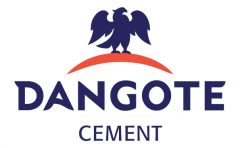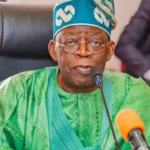
Says Secrecy Provides Convenient Cover For Criminal, Corrupt Persons
Nigeria’s Vice President, Professor Yemi Osinbajo, on Monday in Jakarta, Indonesia, urged the world’s leaders to complement the Extractive Industry Transparency Initiative (EITI) in its task of breaking the barrier of corporate secrecy and removing the veil off beneficial ownership that would ensure that natural resources are used to the benefit of citizens of each country, rather than a few.
Osinbajo, who was speaking at the EITI beneficial ownership conference, according to a release by Laolu Akande, Senior Special Assistant to the President (Media & Publicity), Office of the Vice President, told participant that the agency, though a wonderful tool, cannot on its own reverse the resource curse.
EITI, he continued, “must be mainstreamed and combined with other tools to ensure that natural resources are more prudently managed and better deployed towards both economic growth and sustainable human development.”
While working towards setting uniform standards as of necessity, he national realities must be taken into consideration to make it “ever vigilant of and adapt to new arenas of work such as ownership transparency, and to focus more on impact than on just activities or box-ticking exercises. This is a powerful initiative. It can be even more potent by the collective commitment that we share.”
The need to strengthen EITI and put in place complementary agencies, he said, follows from the reality that “illicit flows are perpetrated in the extractive sector and through companies with hidden ownerships.”
It is particularly important in the developing world and especially in Africa, where it is literarily a matter of life and death, he continued, to break the wall of masked or hidden corporate ownership, which has been “deeply implicated in the sad story of our underdevelopment.”
For him therefore, while “anonymous companies are not always illegal, or are not always designed to harm, but we also know that secrecy provides a convenient cover for the criminal and the corrupt. And we are not just operating from the theoretical or hypothetical standpoint.’’
“Our lived experience has shown clearly that anonymous corporate ownership could serve as vehicles for masking conflicts of interest, corruption, tax evasion, money laundering, and even terrorism financing.’’
Although the level of exposure may differ, Osinbajo urged global powers not to see this as an African or developing world problem, going by the way the world has become more inter-connected with these anonymous companies having footprints and tentacles that do not respect national boundaries.
Everyone in today’ world is at risk of the dangers posed by anonymous corporate ownership, as clearly illustrated by the he global scale and spread of Panama Papers (Wiki leaks), which requires a truly global approach to tackle it, he stressed.
The Vice President called on other G8 and G20 countries to follow the examples of United Kingdom, Norway, Netherlands and Denmark that have led the way in establishing public registers of the real, human owners of companies in their countries, “by initiating actions to end corporate secrecy at home and their dependencies.”
Nevertheless, he noted “that current legislative measures in the mentioned countries may need to go farther to effectively discourage or totally prohibit non-disclosure agreements by governments with big corporates, and to re-evaluate the use of secret trusts to hide beneficial ownership from the prying eyes of the law.
“It is important to underscore the fact that opacity in one section of the globe undermines openness in the other. We need to break down this wall together as we are all at risk of the evil effects of opacity in business ownership.”
Professor Osinbajo said Nigeria is still grappling with the negative consequences of the use of opacity by senior members of government and their cronies between 1993 and 1998, who awarded themselves juicy contracts in the extractive industry. One of such involves” Malabu Oil and Gas that has remained a subject of criminal and civil proceedings in many parts of the world involving huge legal costs while the full benefit of the natural resource remains unexploited for the benefit of the people of Nigeria to which it belongs.”
The campaign to remove secret ownership is mutually beneficial to government and its citizens in the form of increased revenue, better law enforcement that would improve citizens’ welfare; as well as businesses in the form of better operating environment.
It would ultimately result in governments being able to “better serve their citizens but also from knowing who they are doing businesses with or competing against, they benefit from a level playing field, lower costs of doing business, and from reduced reputational risks.”
He therefore called on all stakeholders: governments, businesses, development partners, international organisations, civil society groups, media, and citizens, to get involved in the struggle to lift the veil on companies with hidden ownership.
He alluded to a report claiming that developing countries lose $1tr annually to corporate transgressions, mostly traceable to the activities of companies with secret ownership, and another pointing to the High Level Panel on Illicit Financial Flows from Africa chaired by former South African President Thabo Mbeki, showing that Africa “had lost over $1 trillion over a 50-year period and that Africa loses more than $50 billion annually to illicit financial flows. Most of these illicit flows are perpetrated in the extractive sector and through companies with hidden ownerships.”
The administration of President Muhammadu Buhari, he said, is committed to the EITI principles and the ownership transparency train, as it aligns with set “national priorities and will help to advance the fight against “corruption, combat insecurity and grow the economy.”















